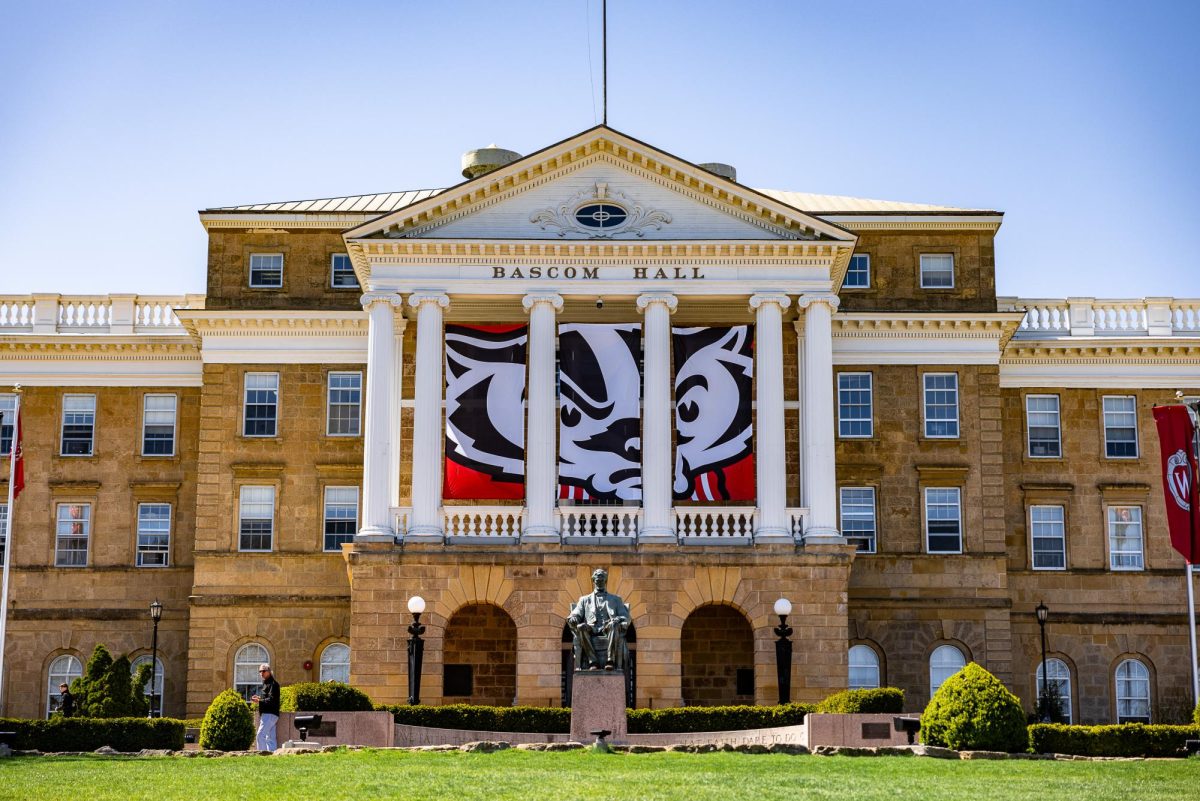
Gov. Scott Walker’s proposed $181 million in investments for the University of Wisconsin System would help ensure tuition increases are “very modest,” a UW System spokesperson said Thursday.
Walker’s proposed investments in the UW System, the largest in recent history, would likely lead to small tuition increases, according to UW System spokesperson David Giroux.
“The best way to ensure modest tuition increases is to make sure the university has ample, reliable state funding,” Giroux said. “Gov. Walker’s budget does just that. … This is as good of a budget as we’ve seen in years.”
Walker’s biennial budget removes the 5.5 percent tuition increase cap he extended in his last budget, so technically, the UW System Board of Regents could increase tuition above that percentage in their meetings this summer.
Although Giroux said he would not speculate on a percentage that the regents would increase tuition by, he pointed to large tuition increases historically coming at times of large budget cuts, a contrast from the budget Walker proposed Wednesday.
“I think this [budget] sets the stage for a very modest tuition increase,” Giroux said.
Walker’s proposed budget faces changes from the Legislature, so during that time, United Council of UW Students is pushing to reinstate a tuition cap. Doing so would remove any uncertainty for students that the regents could “set tuition at will,” Dylan Jambrek, the group’s government relations director, said.
Jambrek pointed to 2005, the last time the cap was not in place, leading to tuition hikes of more than 15 percent at UW.
Rep. Stephen Nass, R-Whitewater, the chair of the Assembly’s Colleges and Universities Committee, is pushing for a tuition cap of about three or four percent, according to his spokesperson Mike Mikalsen. Nass also wants a cap on student fee increases, Mikalsen said.
Walker said last year he supported a tuition freeze, or no tuition increase at all, but he did not include a freeze or a capped increase in his budget. Although Nass supports much of Walker’s budget, Mikalsen said Nass thinks the budget falls short in not protecting students from uncertain tuition increases. Mikalsen encouraged students to tell their legislators they need to include a cap in the budget.
“It’s time for the middle class students to finally stand up and … say, ‘We need you to control tuition,'” Mikalsen said.
Associated Students of Madison Chair Andrew Bulovsky said in a statement the campus student government “will support the efforts of legislators” who push for a tuition cap and the increased funding levels for the UW System.
Walker’s $250 million in cuts to the UW System last year, plus an additional budget lapse of about $66 million, led to the regents increasing general tuition by the 5.5 percent cap last summer. Those tuition hikes were supposed to raise revenues for the system by $110 million, according to a UW System statement.
In this budget, Walker proposed a $181 million investment in the UW System, fully covering university operations, utilities, past construction commitments and fringe benefit increases. The $181 million includes $20 million on new UW System economic development programs and $2 million in its new flexible option online degree program for nontraditional students.
Walker’s investments come at a time when UW System faculty salaries are 18 percent below the national average, a number UW System President Kevin Reilly has said he would like to address.
Giroux said the UW System will try to address and “reach a balance” on three issues: keeping quality high, ensuring college is affordable and the below-average faculty salaries.
Walker’s block grant funding, which offers more flexibility, will help the UW System address all three issues, Giroux said. But Giroux also pointed to another proposal that he said would help the UW System save money. Walker is calling for the UW System to have control over its pay plan by removing legislative approval, in addition to the flexibility the system currently has to set titles and pay ranges.
Jambrek said although United Council recognizes low faculty salaries are harmful to quality, the student advocacy group is “never in favor” of increasing tuition.
“We’re particularly interested in the pay of our faculty, and it most certainly is [a problem], but we don’t think paying faculty should come on the backs of students,” Jambrek said.
Nass is also “seriously concerned” that UW System officials’ focus on increasing faculty pay would lead to tuition raises above the usual 5.5 percent, Mikalsen said.
In his budget, Walker also calls for establishing at least 30 credits that can be transferred within the UW System and technical colleges. Private and tribal colleges can opt into that system.















